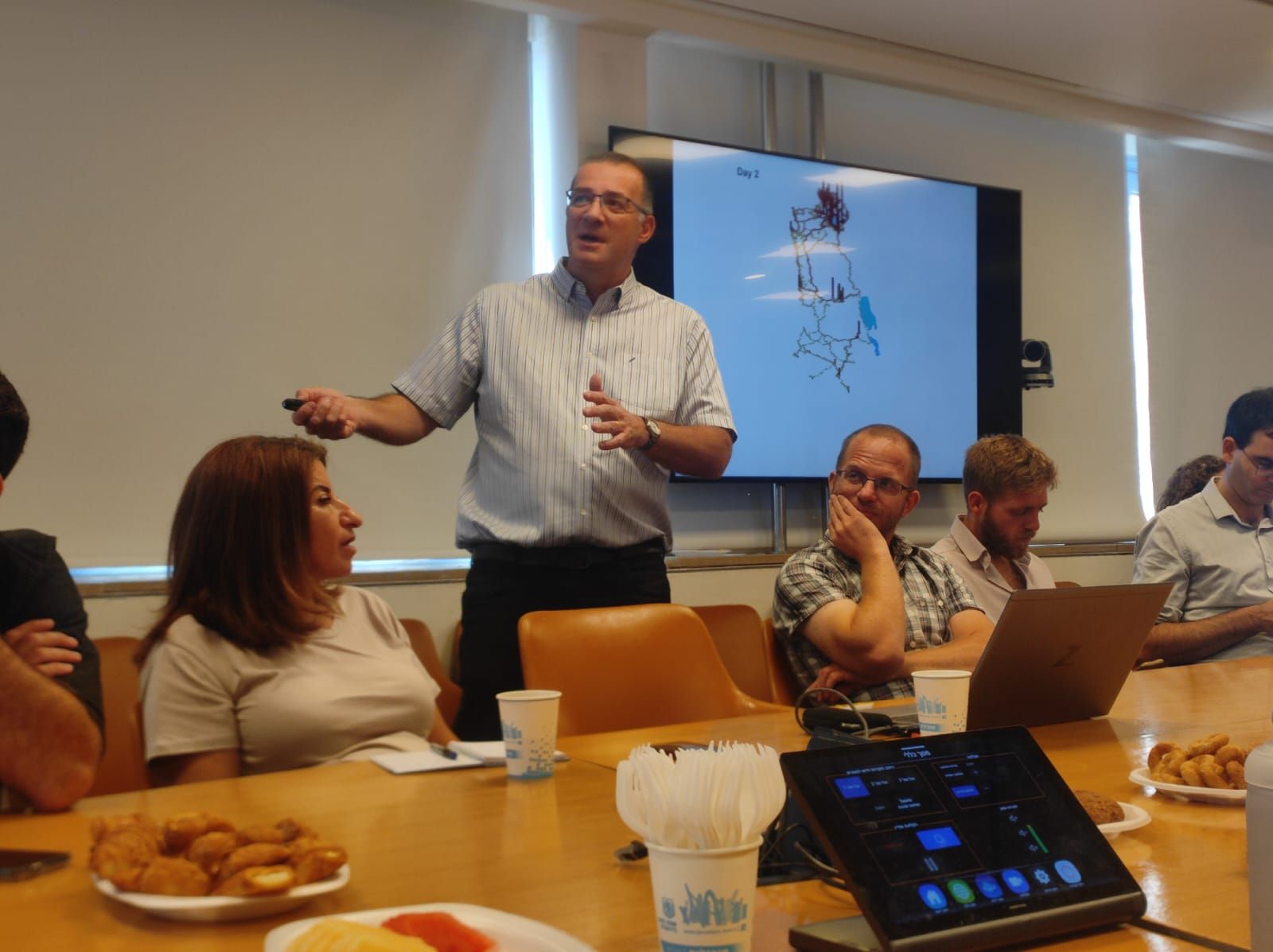
For the past months, the Urban Innovation Centre at the Hebrew University and the Strategic team at the Jerusalem municipality, have been working on establishing the Jerusalem Lab through numerous meetings with researchers, innovators, and senior managers within the Municipality of Jerusalem.
On 10th July, we gathered at the Jerusalem municipality City hall to celebrate the lab's launch as a multi-sector roundtable on “Inclusive Economy within the context of Jerusalem”.
Prof. Noam Shoval, head of the Urban Innovation Centre, opened the event with a lecture on the latest technological developments in collecting and analysing spatial information - a subject he has developed with his team. Among these advanced technologies are wearable sensors, allowing one to document the emotional reaction a respondent has while moving within a specific physical setup, or smart glasses, which trace and record the eye movement of the user, thus allowing one to analyse the built environment based on those documented details. While Prof. Shoval demonstrated the use of these devices with groups of tourists, this technology could be deployed with other respondents – depending on the subject at hand (for example, the elderly population).
We followed Prof. Shoval’s fascinating lecture with two introductory presentations by Mr. Avner Sa’adon, head of the Strategy and Policy department in Jerusalem’s Municipality and Dr. Na’amah Hagiladi, director of the Jerusalem Lab. Dr. Hagiladi introduced the lab’s vision and methods alongside inspiring examples of worldwide impact labs – such as the Poverty Lab (https://www.povertyactionlab.org/), established in 2003 by Prof. Abhijit Banerjee and Prof. Esther Duflo. Who received the Nobel Prize in 2019 for their achievements. Their lab uses Randomized Controlled Trials (RCTs) to analyse the impact of policies and strategies. Mr. Sa’adon presented the lab’s current mission: supporting the City’s inclusive economy challenge within Jerusalem’s different demographic groups and socio-economic states.
We concluded the presentations with the presentation of Mr. Eliyahu Wind, who leads the Haredi population employment at the employment services department at the Municipality. One of these services is the Kivun Centre, which offers employment guidance for the Haredi sector (https://www.kivun.org.il/english). The presentation provided a thorough background to the history of employment within the Haredi population in Israel – and the story of the Kivun centre and its challenges.
The second part of the day encompassed round-table discussions where the event participants proposed different ideas and research pathways to develop further the lab’s current challenge.